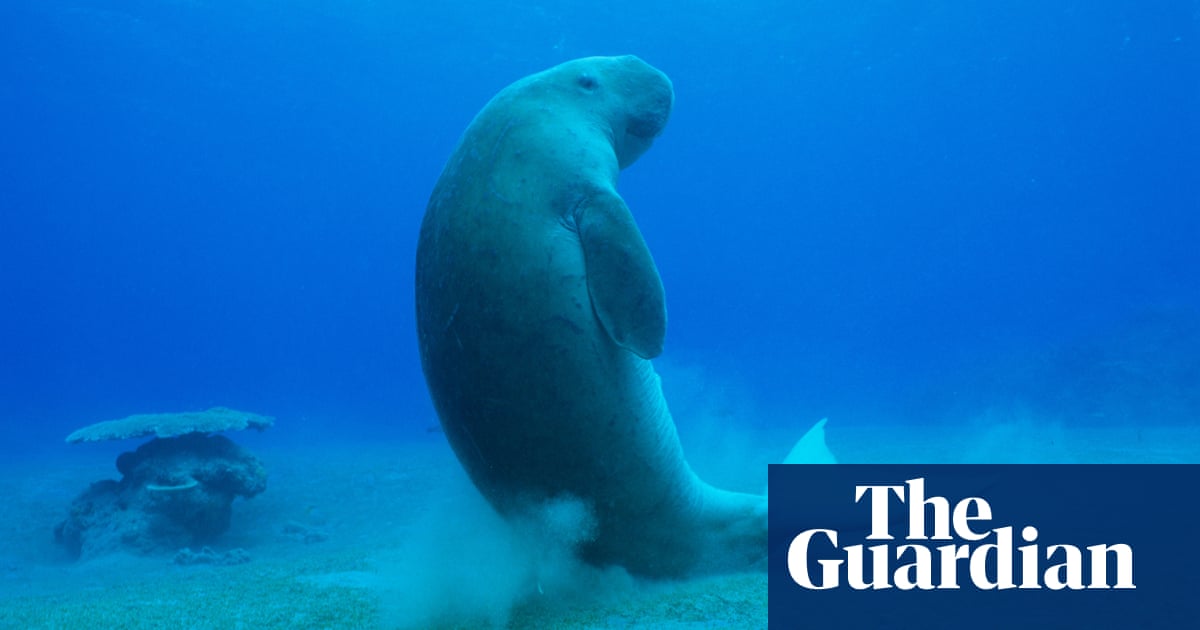
A government report card has found the marine environment along the Great Barrier Reef’s coastline remains in poor health, prompting conservationists to call for urgent action ahead of a world heritage committee meeting this year.
The reef water quality report card, released on Wednesday, said the health of corals and seagrass meadows in inshore areas had not improved, but water quality was slightly better than previous years.
Officials gave the condition of the marine environment in 2019 a “D” grade relative to reports covering 2017 and 2018.
The federal environment minister, Sussan Ley, and Queensland’s environment and Great Barrier Reef minister, Meaghan Scanlon, said improved farm practices and a $667m investment to support graziers and sugar cane farmers was helping water conditions.
“The fact that the overall marine condition remains poor underlines the importance of those investments,” Ley said.
The world heritage-listed Great Barrier Reef is the world’s largest coral reef system but is under increasing pressure from climate heating that caused mass bleaching events in 2016, 2017 and 2020.
The report’s monitoring period ended before the onset of widespread bleaching in early 2020.
Scientists say improving water quality and reducing sediments, fertilisers and chemicals running into the reef’s waters will give the system a greater chance of recovering from future bleaching.
The UN’s world heritage committee is due to review the status of the reef at a meeting scheduled for June in China.
In 2017, the committee said progress towards meeting water quality targets needed to be accelerated.
Governments have set a raft of targets for 2025 for the reef’s catchments.
Ley and Scanlon pointed to reductions in levels of dissolved inorganic nitrogen – originating from fertilisers – with cumulative levels dropping 25.5% since 2013. The target is a 60% drop by 2025.
Wet tropics and Burdekin farmers had been key contributors to water quality improvements, the ministers said.
The Queensland government says dissolved inorganic nitrogen is linked to algal blooms, outbreaks of coral-eating starfish and coral disease.
As well as water quality, there are also targets for improving land management practices for sugar cane, grazing, horticulture, grains and bananas.
Some 90% of land in priority areas should be using best practice by 2025, according to the targets.
Only 12.7% of land for sugar cane farming was using best practice, the report card said. The banana industry was the highest performer, according to the report, with 65% of land covered.
The Queensland government passed new reef water quality laws in 2019 that will give the government power to set minimum standards.
Some rules around better record keeping are already in place, but others are scheduled for later this year and 2022.
Dr Lissa Schindler, Great Barrier Reef campaigner at the Australian Marine Conservation Society, said the report card showed governments “still have a long way to go” to reach the water quality targets being eyed by the world heritage committee.
“Improving water quality needs the support and dedication of all farmers and graziers in Queensland and they’ll need backing from the Queensland government to adopt the best practices required,” Schindler said. “That’s why we are calling for more funding to help the agricultural sector comply quickly with the regulations.”
She hoped that in the next report card in 2022, the affect of the government’s new laws would force improvements.
Richard Leck, head of oceans at WWF-Australia, said: “We know that the world is watching on for Australia’s performance in improving water quality on the great barrier reef and it’s concerning that progress is slow. But it is heartening that there is some progress.
“The Queensland and Australian government need to commit to long-term investments to improving water quality and to make sure the reef regulations are adequately enforced.
“What this report shows is that we need long term commitments on water quality. It is a long-term problem and a lot needs to be done.”












